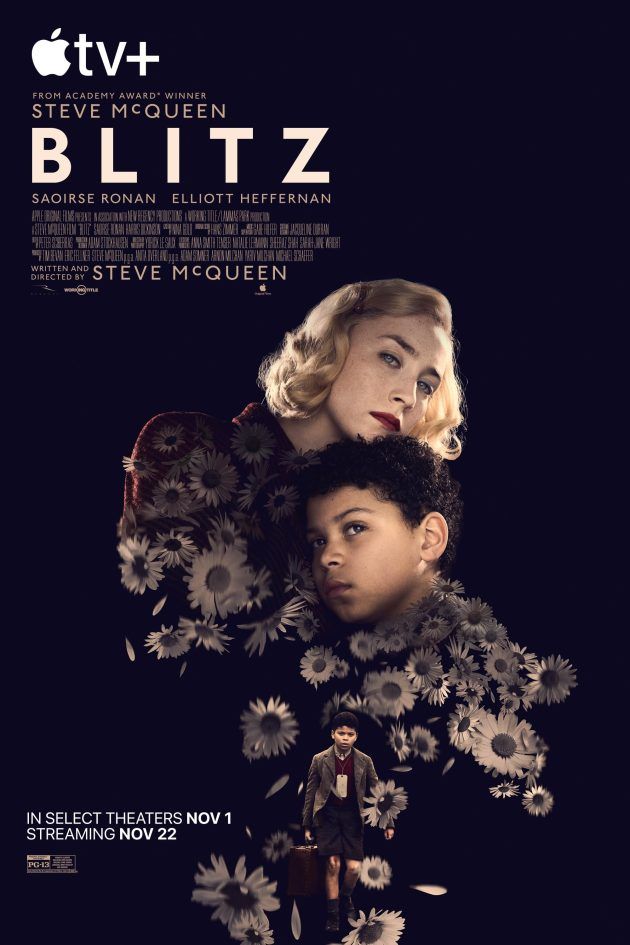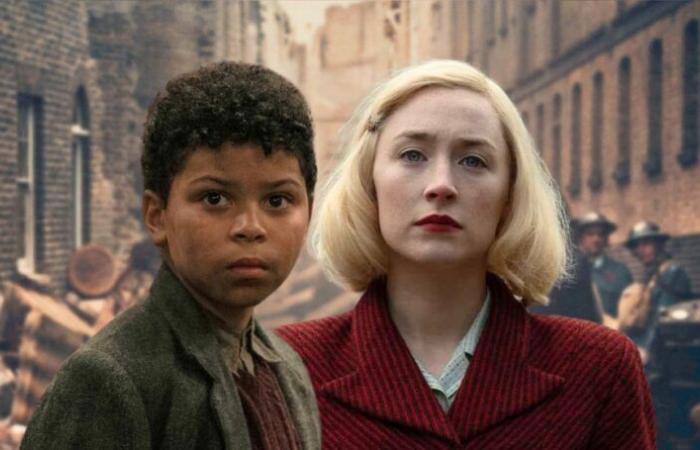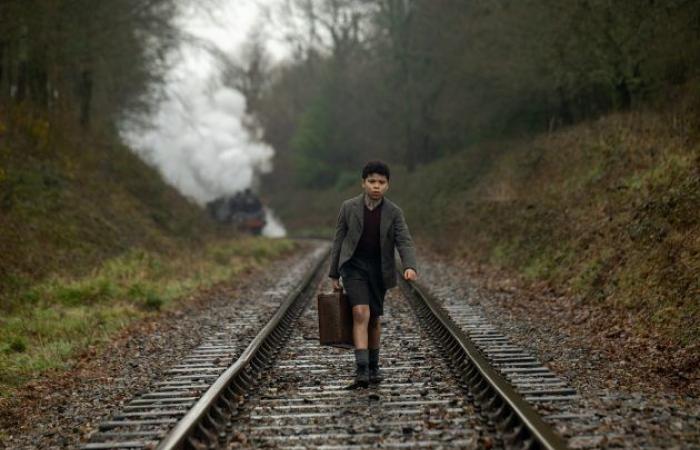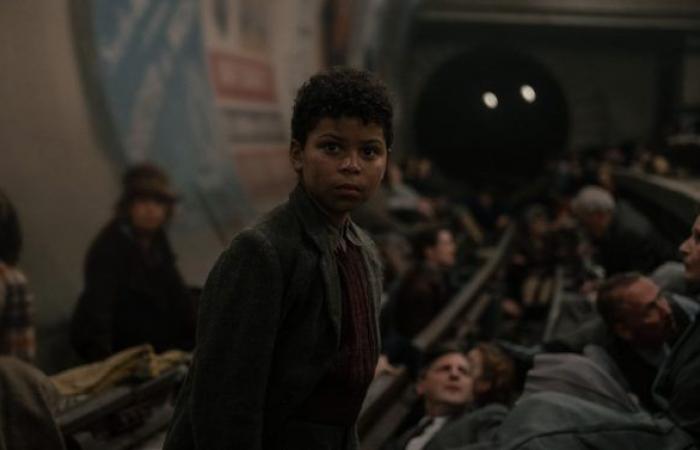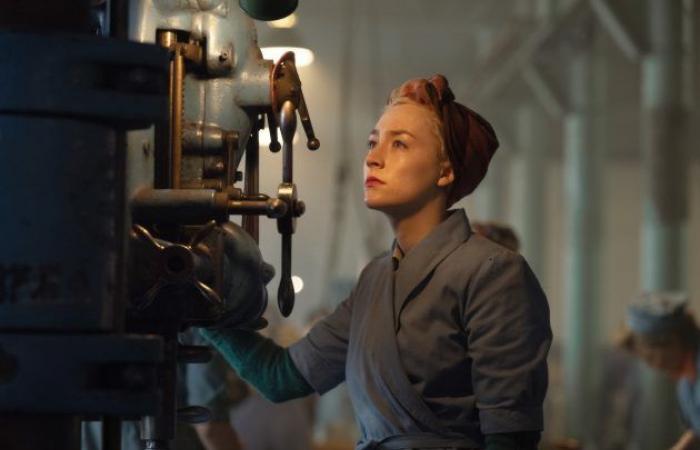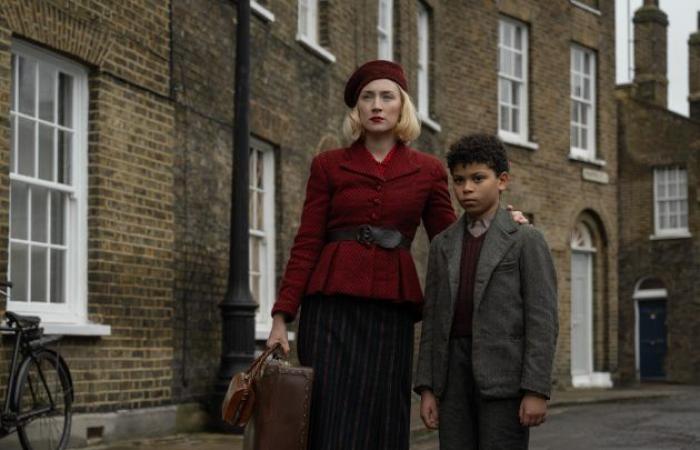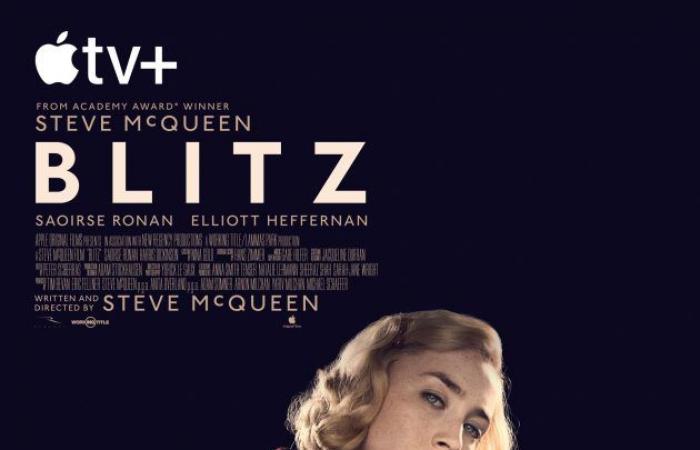The great blitz
With its opulent documentary Occupied City (4h26 long), Steve McQueen painted a fascinating portrait of the city of Amsterdam while creating a hypnotic parallel between two generations: on the one hand, that which suffered the German occupation during the Second World War and, on the other hand, the other, that having been affected by the Covid-19 pandemic. In front Blitz, even if it is surely unintentional – the film finished filming at the end of 2022 –, difficult not to draw a parallel between this London of the 1940s and contemporary Gaza.
Blitz takes place in September 1940 in London, a period during which the British capital tried to survive the onslaught of Nazi bombs every night and where 1.25 million people were evacuated. It therefore follows a young mother, Rita (played by the delicate and determined Saoirse Ronan), and her mixed-race son George (the first role of young Elliot Heffernan). To protect him from the war, she sends him to safety in the countryside via a government program, but the boy does not agree. Jumping from the train taking him away from the chaos, he will do everything to reach London and find his mother.
In an adventure à la Charles Dickens, even Spielbergian (Empire of the Sun in line of sight), George discovers an entire universe in a tumultuous learning story (also evoking Pinocchio). Whether he meets the black officer Ife (a sort of substitute father figure), horrible thugs (Stephen Graham terrifying as an opportunistic looter) or simple Londoners oscillating between ordinary racism and unexpected benevolence, a long journey begins. in place with this barely 8 year old kid.
In a romantic gesture, Steve McQueen gradually confronts him with the lies of adultsto the cruelty of the world around him and finally to a sad truth, where his childhood innocence will be powerless in the face of the horror of reality. And the film gains further strength during the chaotic surge affecting London, when George is truly sucked into an intractable war of which he is a collateral victim.
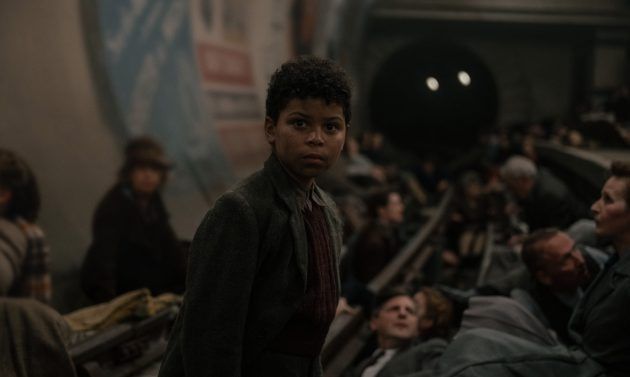

The widow and the child
Blitz However, do not avoid some pitfalls. By focusing enormously on the young boy's journey, the film flutters with the sentimentality of tales at times and certain asides (everything that revolves around racial tensions) are too manufactured to anchor themselves naturally in the story (the flashback on Marcus , George's father). Furthermore, the alternating montage between George's epic and the busy daily life of his mother working in the factory to participate in the war effort is a particularly strange choice.
In 1 hour 30 minutes (out of the 2 hours of the film), George experiences multiple adventures in a few hours when Rita seems frozen for several days. Their temporalities seem incompatible on the screen and yet, they are indeed living contiguous stories, on the verge of merging, during the real shift in the last third. Everything therefore does not come together completely in Blitzat least initially, and the story sometimes fails narratively (what about the interest of Harris Dickinson's character?).
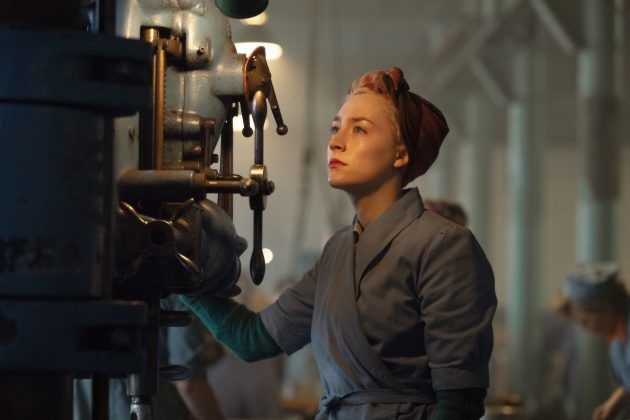

Steve McQueen fortunately deploys the full scope of his staging to sublimate the wholein particular by reconstituting the bombed London of the 1940s. He films the tough battle of firefighters to extinguish a burning building, the distressing flooding of a subway entrance (not without recalling the beauty of the sinking scenes of the Titanic by James Cameron), the shrill fall of the bombs in the Thames (the sound work is crazy) or films the extent of the damage in a magnificent aerial shot, the Briton offers an absolute visual spectacle.
It is all the more striking when he manages to create unexpected junctions, like this disconcerting festive interlude suddenly transforming into an extremely evocative macabre spectacle. This mixture between poetic abstraction, social-political fresco and initiatory journey demonstrates all the ambition of Steve McQueen, but also the limits of his Blitz.
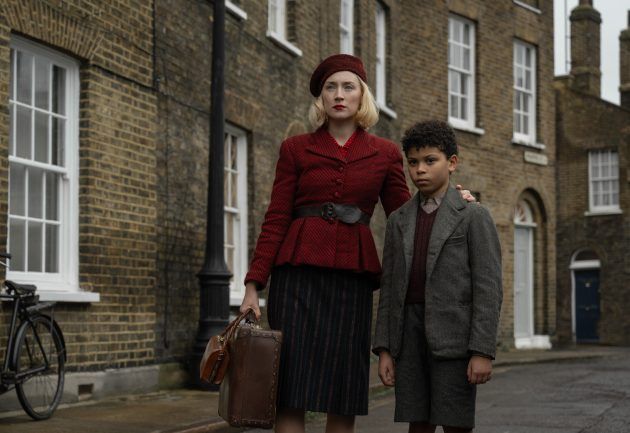

He is so torn between several identities, in search of an untouchable ideal (a bit like his young hero) between his structural classicism and his more authentic imagery, that he forgets to lift our hearts before his big finale (except the farewell scene on the train). Because even if the last shot is overwhelming and Steve McQueen demonstrates extreme humanism, Blitz moves almost more for its technical mastery than for its melodrama for children.
Blitz is available on Apple TV+ in France since November 22, 2024
